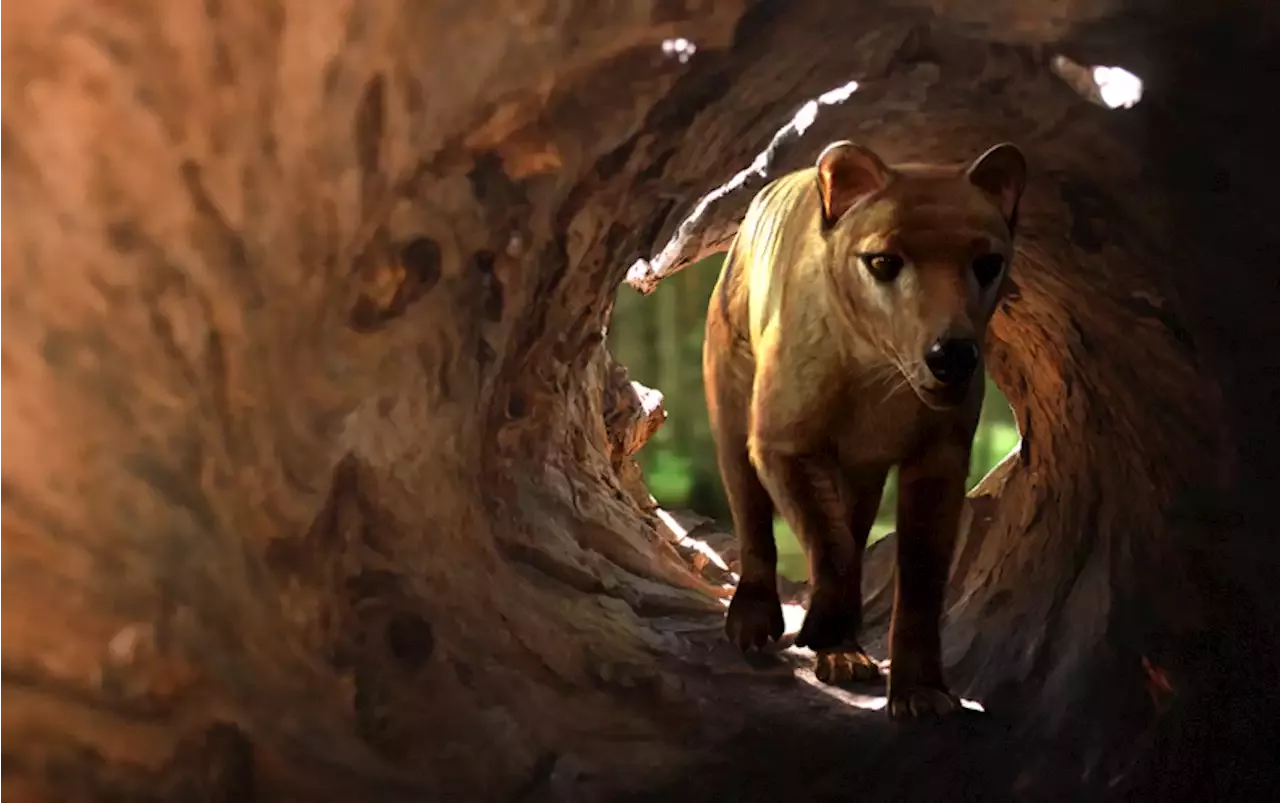The thylacine has long been an icon of human-caused extinction. In the 1800s and early 1900s, European colonizers in Tasmania wrongly blamed the dog-sized, tiger-striped, carnivorous marsupial for killing their sheep and chickens. The settlers slaughtered thylacines by the thousands, exchanging the animals’ scalps for a government bounty. The last known thylacine spent its days pacing a zoo cage in Hobart, Tasmania, and died of neglect in 1936.
Colossal Biosciences, co-founded by Harvard University geneticist George Church and tech entrepreneur Ben Lamm, is working with the University of Melbourne’s Andrew Pask, who has already sequenced most of the thylacine genome. The thylacine is the perfect candidate for de-extinction, Pask says, because it died out relatively recently, good-quality DNA is available, and its prey and parts of its natural habitat still exist.
To resurrect the woolly mammoth, Colossal’s researchers plan to introduce mammoth genes into the genome of the Asian elephant, its closest living relative. They will then try to create an embryo carrying that modified DNA that could gestate in an African elephant “surrogate” or an artificial uterus. The resulting creature would not be a mammoth per se but rather a cold-adapted “Artic elephant” with small ears, shaggy hair, a domed forehead and curved tusks, Lamm says.
Next the researchers will compare the genome of the thylacine to that of one of its closest living relatives: the fat-tailed dunnart, a mouse-sized marsupial that is relatively abundant and copes well in captivity. Using CRISPR gene-editing technology, the scientists will engineer the dunnart’s genome to more closely resemble the thylacine’s.
Collectively, these new marsupial reproductive technologies could become crucial tools for the conservation of extant species such as koalas or numbats, Pask says. “There is absolutely no way I would have the millions that I have now for marsupial conservation if I [wasn’t] trying to bring the Tasmanian tiger back,” he says.
We had a bunch of decreasingly entertaining movies about this very concept!
Why not bring back homo sapiens first?
Crazy
Wasted (financial, expertise, human) resources when there's so many highly efficient (in terms of climate change and reduction of death&suffering-impacts) parts of research that are totally neglected. Lots of bioresearch needs + rather conserve (some of the) endangered species.
Got stock?
They need to be careful about reintroducing them to the wild if they are successfully cloned. Their old foes Dingoes are still in the Outback. And now there are also monster feral cats grown to giant sizes in the absence of predatory competition. The Thylacine must be prepared.
In this climate?
If one day humanity will be multi planetary life this works will help so much to make new populations in other countries .
Just please bring back my dog
Cute ears 🎵 mind if I've got stripes too? 🎵
I mean, you got orthodox people in downstate NY bringing back Polio, so .. sure, why not thylacines?
They ought to be thinking of how to bring back bees before it becomes a necessity
Good news. Australian enviroment really needs an apex predator.
LOL. These 'revivalists' who want to bring back extinct *organisms* are childish romantics. Why not bring back Tyrannosaurus Rex? They could cut the world's grossly excessive and mostly worthless human population real fast? Or reintroduce smallpox which could do it even faster?
We have MULTIPLE movies proving this ends badly!
We Australians as a nation made the thylacine become extinct & we must be accountable for that. Glorifying some scientists to bring them back from the dead, is purely egocentric. Please look after the animals & their habitat that still could become extinct!! thylicirne extinct
We've been successfully reintroducing species back into ecosystems for decades. Reintroducing the wolves to Yellowstone was also a boogy-monster story, before it was a fairy tale...
Maybe they should finish one of these things.
The grass always looks greener on the other side of a species reintroduction story
Its already living. There are so many really good pictures out there i would be more concerned with if theyre still prowling the outback than recreating more just yet.
Why?
Just some perfectly normal stuff happening here.
What could possibly go wrong?
